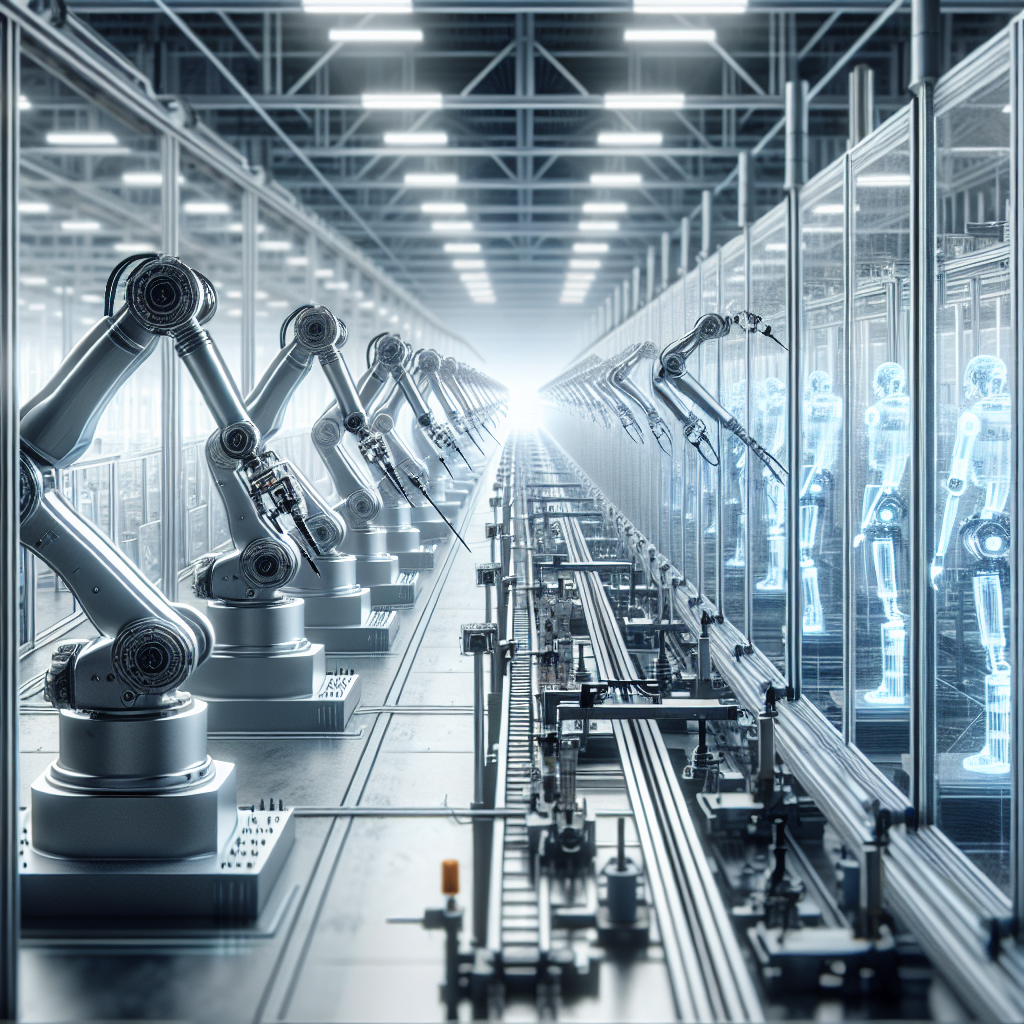Artificial Intelligence (AI) has been transforming industries across the board, and manufacturing is no exception. The integration of AI technology in manufacturing processes has led to increased efficiency, improved product quality, and reduced costs. However, as with any technological advancement, there are risks associated with the implementation of AI in manufacturing. In this article, we will explore the potential risks of AI in manufacturing, focusing on its impacts on jobs and production.
Impact on Jobs:
One of the primary concerns surrounding the implementation of AI in manufacturing is its potential impact on jobs. AI technology has the ability to automate repetitive tasks that were traditionally performed by human workers, leading to fears of job displacement. According to a report by the World Economic Forum, AI and automation are expected to displace 75 million jobs by 2022, while creating 133 million new jobs.
The introduction of AI in manufacturing has the potential to streamline production processes, increase productivity, and reduce costs. However, this may come at the expense of human workers who are no longer needed to perform certain tasks. Jobs that are at risk of being automated by AI in manufacturing include routine assembly line work, quality control, and inventory management.
While the automation of certain tasks may lead to job displacement in the short term, it is important to note that AI also has the potential to create new job opportunities in the long run. As AI technology continues to advance, new roles will be created that require human oversight, maintenance, and programming of AI systems. These roles may include AI technicians, data analysts, and machine learning engineers.
It is essential for manufacturers to invest in reskilling and upskilling programs for their workforce to adapt to the changing landscape of AI in manufacturing. By providing training and education opportunities, manufacturers can ensure that their employees are equipped with the skills needed to thrive in a technology-driven environment.
Impact on Production:
In addition to its impact on jobs, AI also poses risks to production processes in manufacturing. AI technology has the potential to optimize production schedules, predict equipment failures, and identify inefficiencies in the manufacturing process. However, the implementation of AI in manufacturing also comes with its own set of challenges.
One of the key risks associated with AI in manufacturing is the potential for system failures and data breaches. AI systems rely on large amounts of data to make decisions and predictions, which can be vulnerable to cyber attacks. Manufacturers must implement robust security measures to protect their AI systems from unauthorized access and ensure the integrity of their data.
Another risk of AI in manufacturing is the potential for bias in AI algorithms. AI systems are only as good as the data they are trained on, and if the data used to train an AI system is biased, it can lead to biased outcomes. Manufacturers must be vigilant in ensuring that their AI systems are trained on unbiased data to prevent discriminatory practices in production processes.
Furthermore, the implementation of AI in manufacturing may lead to a lack of transparency and accountability in decision-making processes. AI systems are often complex and opaque, making it difficult for human operators to understand how decisions are being made. Manufacturers must establish clear guidelines and protocols for the use of AI in production processes to ensure accountability and transparency.
FAQs:
Q: How can manufacturers mitigate the risks of AI in manufacturing?
A: Manufacturers can mitigate the risks of AI in manufacturing by implementing robust security measures, providing training and education opportunities for their workforce, and ensuring that their AI systems are trained on unbiased data.
Q: What are the potential job opportunities created by AI in manufacturing?
A: AI in manufacturing has the potential to create new job opportunities in roles such as AI technicians, data analysts, and machine learning engineers.
Q: How can manufacturers ensure transparency and accountability in decision-making processes with AI?
A: Manufacturers can ensure transparency and accountability in decision-making processes with AI by establishing clear guidelines and protocols for the use of AI in production processes.
In conclusion, while the integration of AI in manufacturing has the potential to revolutionize the industry, it also comes with risks that must be carefully managed. By addressing the impact of AI on jobs and production processes, manufacturers can leverage the benefits of AI technology while minimizing its potential drawbacks. It is essential for manufacturers to invest in training and education programs for their workforce, implement robust security measures, and ensure transparency and accountability in the use of AI systems. Ultimately, the successful integration of AI in manufacturing will require a collaborative effort between humans and machines to drive innovation and growth in the industry.

